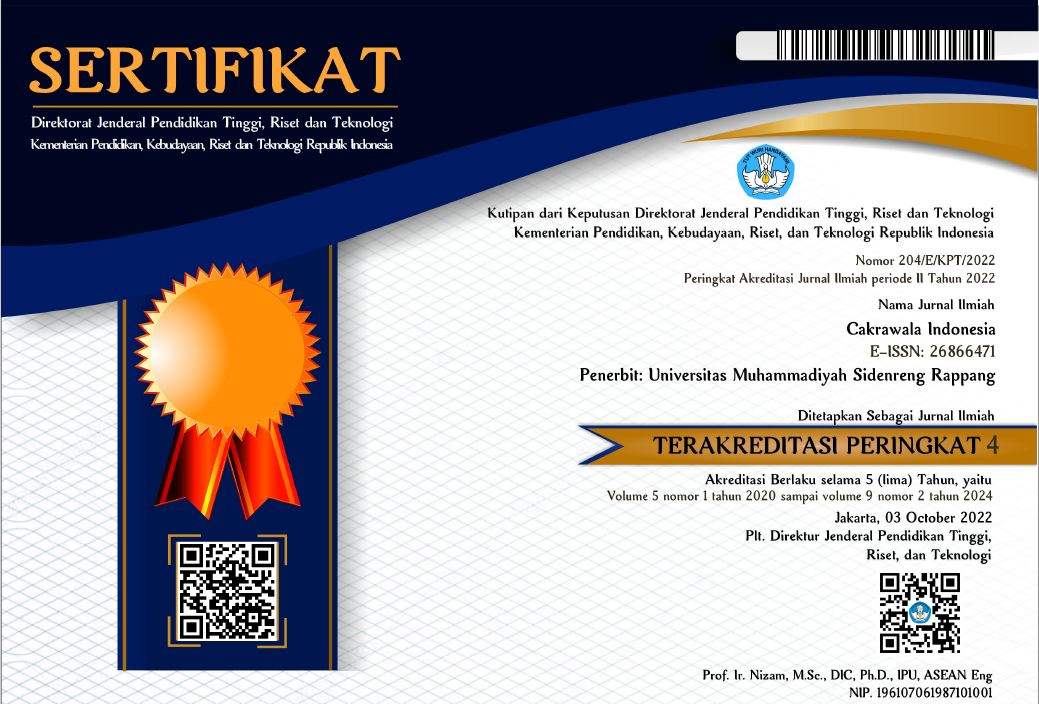BENTUK PENYIMPANGAN PRINSIP KESANTUNAN BERBAHASA DALAM DISKUSI
Abstract
This study aims to describe the deviations and compliance with the principle of politeness in language that occurs in discussion in class VII students of SMP Negeri 1 Pancarijang. The method used in this research is descriptive qualitative method. The technique used in collecting data uses listening techniques, record techniques and note taking techniques. Data analysis uses the pragmatic equivalent method. Data deviations from the politeness principle of language consists of six maxims, including maxims of wisdom, sympathy, appreciation, generosity, simplicity and consensus. Among the maxim of politeness, the maxim that is most distorted in terms of word choice and polite manner of discussion is the maxim of appreciation. Meanwhile, the maxim that is the most followed in terms of word choice and polite discussion is the maxim of wisdom.
References
Kridalaksana. 1993. Kamus Linguistik. Jakarta: Ggramedia Pustaka.
Leech, G. 1993. The Principle of Pragmatics. Jakarta: Universitas Indonesia Press.
Rahardi, K. 2005. Pragmatik Kesantunan Imperatif Bahasa Indonesia. Jakarta: Erlangga.
Wijana, I. D. 1996. Dasar-dasar Pragmatik. Yogyakarta: Andi.
Retained Rights/Terms and Conditions of Publication
As an author you (or your employer or institution) may do the following:
- Make copies (print or electronic) of the article for your own personal
- Every accepted manuscript should be accompanied by "Copyright Transfer Agreement" prior to the article publication






